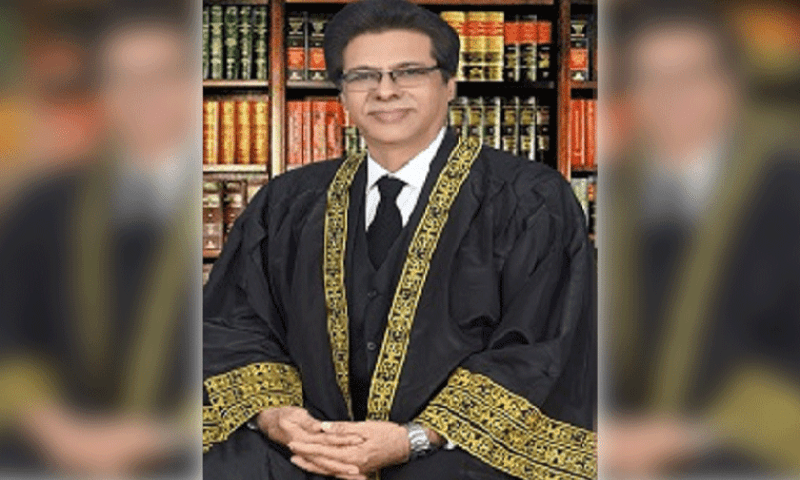ISLAMABAD: Supreme Court’s Justice Muhammad Ali Mazhar has observed that a defective investigation gradually contaminates the judicial process and poses a threat to human rights.
The judge gave these remarks on Tuesday while heading a three-judge bench that took up the appeal filed by Ikramuddin Rajput, a former sub-inspector at Mominabad police station in Karachi’s District West.
Mr Rajput had appealed against a March 31, 2022, order of the Sindh Service Tribunal, rejecting his plea seeking restoration of his service.
The applicant — who was assigned to investigate the case of a seven-year-old girl’s rape — was dismissed from service in 2020 after he reduced the charge of rape into an attempt to commit rape despite the confirmation of rape in medical examination.
Tribunal’s decision against police officer
The charges were reduced even though the victim’s father witnessed the crime, captured the culprit with the help of neighbours and handed him over to the police.
On receiving a complaint, the then West Zone DIG issued a show-cause notice to the petitioner, who denied the allegation. The applicant was also provided with a personal opportunity of hearing, the order noted.
He was dismissed from service on Aug 4, 2020, and his departmental appeal was also rejected. Subsequently, the applicant filed an appeal before the Sindh Service Tribunal Karachi, which was also dismissed.
Mr Rajput’s appeal against the tribunal’s decision was rejected by the Supreme Court as it did not find any illegality in the judgement.
Justice Mazhar observed that investigation is an art and for attaining proficiency in this job, extensive training is required to ensure integrity and uprightness.
“It [investigation] is also a foundational pathway for the prosecution case, and being a sacrosanct duty of an investigation officer, it should be performed without any recklessness, sluggishness, or greediness.”
Calling the police a “disciplined force”, Justice Mazhar, in his order, wrote: “[A]ny person who wants to be part of the disciplined force should be a person of utmost integrity and uprightness with an unimpeachable, spotless character, and clean antecedents.”
The judge observed that the disciplinary action was taken against the officer after following the due process of law and “on the basis of self-evident and self-explanatory documents”.
The order stated that it is the duty of superior officers and those in charge of police stations to ensure the investigation officer (IO) follows the law and conducts an impartial and honest investigation.
An IO plays a crucial role in the criminal justice system, and the contents of an investigation report have “plenteous value and repercussions” on the outcome of any criminal case.
Justice Mazhar lamented that a “botched-up investigation” can become “a top impediment and stumbling block in the administration of justice”.
This could be intentional with the aim “to favour the accused or unintentional due to inefficiency, incompetence, or unskillfulness of IO”.
The order cited Section 166(2) of the Pakistan Penal Code, which stipulated that any officer entrusted with the investigation of a case who fails to carry out their job “properly or diligently” or fails to pursue the case in court shall be punished with imprisonment of up to three years or fine. Whereas Section
“Whereas Section 27 of the Anti-Terrorism Act, 1997, provides that if an Anti-Terrorism Court or a High Court comes to a conclusion… that the investigating officer or other concerned officers have failed to carry out investigation properly or diligently or have failed to pursue the case properly and in breach of their duties, it shall be lawful for such Court … to punish the delinquent officers with imprisonment which may extend to two years, or with fine or with both by resort to summary proceedings.”
Justice Mazhar added that in order to sentence a criminal, the “foremost objective is to penalise the offenders” in light of the evidence.
While dismissing the plea, the bench clarified that its order only pertained to the disciplinary action taken by the department against and its upholding by the tribunal.
It added that the verdict will not affect the trial court’s proceedings in the rape case registered under Section 376 of PPC at the Mominabad police station, “which will be decided on its own merits and in accordance with the law”.Section 376 PPC deals with the offence of rape and prescribes a punishment of death or a maximum imprisonment of 25 years with a fine.
Published in Dawn, March 13th, 2024







